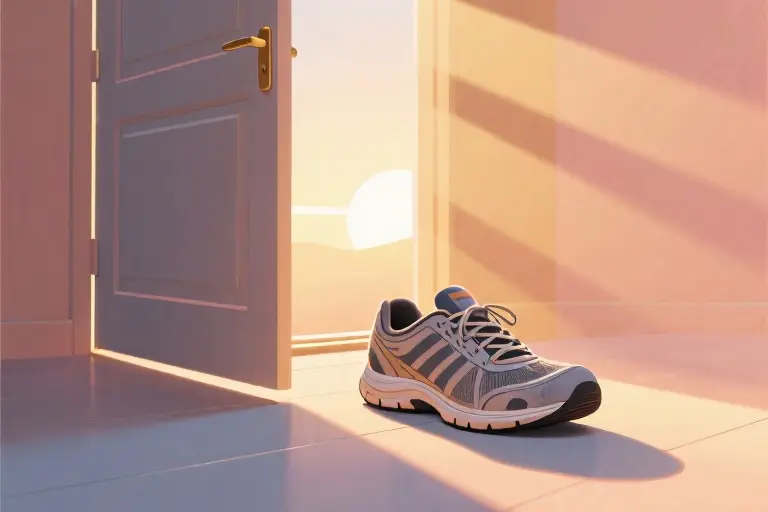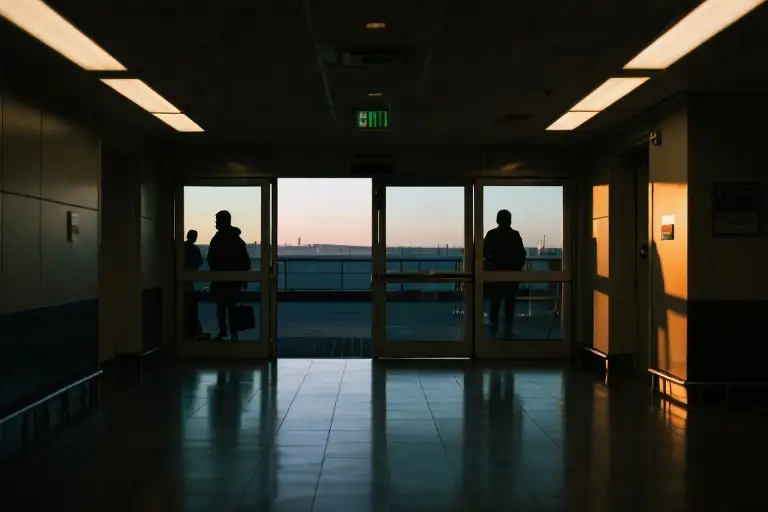The glow of my computer screen illuminated empty energy drink cans and untouched textbooks at 2 AM—a scene repeated countless nights during my high school years. While the 10,000-hour rule suggests that same time investment could have made me a concert violinist, I became extraordinarily skilled at pressing QWER keys instead.
My teenage bedroom transformed into a command center for virtual conquests. The moment school ended, my backpack would hit the floor with a thud, its contents—algebra homework, college prep materials—spilling out like casualties of war. The real battle awaited in League of Legends, where I’d spend hours coordinating pixel-perfect attacks while real-life responsibilities faded into the background.
This wasn’t casual gaming. It was a full-blown obsession that reshaped my circadian rhythms, dietary habits, and social development. The blue light from my monitor became a permanent fixture, casting long shadows across unfinished projects and missed opportunities. Friends invited me to parties; I invented excuses about ‘family commitments’ while queuing up for another ranked match.
What makes this behavior particularly ironic? Malcolm Gladwell’s famous 10,000-hour principle, typically cited as the pathway to mastery, became in my case a roadmap to regret. Those hours I spent chasing virtual achievements could have been used to:
- Achieve fluency in three languages
- Earn a bachelor’s degree with honors
- Train for and complete multiple marathons
The keyboard under my fingers developed a glossy sheen from constant use, while other skills atrophied from neglect. I could execute complex champion combos with millisecond precision, yet struggled with basic adulting tasks like cooking balanced meals or maintaining eye contact during conversations.
This introduction isn’t meant to shame fellow gamers—I understand the allure better than most. Rather, it’s about confronting the hidden curriculum of video game addiction: the social skills not practiced, the talents not nurtured, the relationships not formed during those critical developmental years. The empty cans and dusty textbooks in my old bedroom tell a story far more revealing than any endgame scoreboard ever could.
The Obsession Archives
The ritual began the moment my sneakers crossed the threshold. Backpack launched into the corner with Olympic-level precision, shoes kicked off mid-stride, and a beeline to the glowing battlestation. The mechanical keyboard’s rhythmic clicks marked the transition from school zombie to summoner’s rift general. I’d adjust my gaming chair with the solemnity of a pianist at a Steinway – seat height perfect, armrests leveled, RGB lighting synchronized to my champion selection. This wasn’t just playing; it was a consecrated ceremony.
My ‘nutrition strategy’ resembled an eSports training regimen, if the coach was a convenience store freezer. Dinner? That’s what Mountain Dew Code Red and Cool Ranch Doritos were for. The sugar-caffeine cocktail fueled 8-hour sessions where my only physical movement was furious mouse clicks and the occasional stretch to grab another neon-colored energy drink. My friends joked about my ‘gamer diet,’ but the joke wore thin when I started getting heart palpitations during ranked matches.
The lies came easier than combo chains. “I’m working on my coding project” became my go-to when parents peeked into my cave. The glowing blue light of Visual Studio Code stayed perpetually open in the background – a digital fig leaf covering my League of Legends client. I mastered the alt-tab maneuver faster than any in-game skill shot. When confronted about slipping grades, I’d spin elaborate tales about “learning teamwork and strategy” or how Starcraft was “basically a math simulator.”
What began as after-school decompression metastasized into something darker. Weekends disappeared into 14-hour gaming marathons where daylight became an abstract concept. My sleep schedule inverted like some nocturnal streamer, surviving on 3AM instant noodles and the adrenaline of climbing ranked tiers. The real world faded – homework deadlines blurred into quest timers, family dinners felt like inconvenient cutscenes interrupting gameplay.
Three distinct phases emerged in my descent:
- The Grind Phase: Tracking win rates in spreadsheets, studying patch notes like sacred texts, convincing myself this was “productive” because I was “getting good” at something.
- The Isolation Phase: Declining hangouts because “the squad needs me for raids,” relationships maintained entirely through Discord pings and in-game emotes.
- The Denial Phase: Genuinely believing my 3,000 hours in MOBAs qualified as “strategic thinking practice” while barely passing algebra.
The turning point came when my little sister asked why I never played with her anymore. Not in games – in real life. Her confused face staring at my profile picture (a gaming avatar) on her birthday party invitations hit harder than any parental lecture. But even that wake-up call took months to penetrate the dopamine fog.
What makes gaming addiction insidious isn’t the time consumption – it’s the self-deception. We tell ourselves we’re building skills, being part of communities, even earning potential careers. And sometimes, rarely, that’s true. But for most of us? We’re just squeezing that toothpaste tube of time, watching irreplaceable hours ooze out into the digital void.
Keyboard click echoes fade. The monitor’s glow catches dust particles in the air like floating XP orbs. Somewhere outside my bedroom, a life was happening – one I wouldn’t get to respawn.
The 10,000-Hour Invoice
Let’s do some brutal math. That decade of gaming? It wasn’t just late-night sessions and Mountain Dew-fueled marathons. It was 10,000 hours of my life – a number so colossal it barely feels real until you break it down.
The Cold Equations
- Daily Perspective: 10,000 hours equals roughly 1 hour every single day for 27 years. That’s longer than most professional athletes’ careers.
- Teenage Reality: For me, it was 20 hours weekly throughout high school and college. The equivalent of a part-time job where I paid in youth instead of earning.
- Milestone Math: Every 1,000 hours spent chasing virtual achievements was:
- 6 months of 8-hour daily language immersion (fluent Spanish)
- 1.5 years of coding bootcamp attendance (job-ready developer skills)
- 500 hours of guitar practice (enough to play wedding gigs)
The Opportunity Cost Catalog
| Gaming Achievement | Real-World Equivalent |
|---|---|
| 3,000 League matches | Bachelor’s degree in Communications |
| Platinum Rank | Certified Personal Trainer certification |
| All WoW expansions | Writing a 300-page novel |
I remember watching a documentary about Bill Gates’ early programming years. That famous “10,000 hours of coding in Harvard’s computer lab” story? My Dota 2 playtime could’ve been my Gates moment – just swap out changing the world for memorizing hero damage stats.
The Wake-Up Call
What stings most isn’t the lost time itself, but what that time represented:
- Social Currency: Those hours could’ve built real relationships instead of Discord friendships that faded with each game update.
- Body Investment: My quick fingers could’ve learned piano instead of perfecting APM (actions per minute) in StarCraft.
- Career Capital: Imagine if I’d applied my encyclopedic game knowledge retention to, say, law school.
The irony? Games taught me to optimize everything – except my actual life. I could calculate damage-per-gold ratios down to decimals, but never considered the ROI of my own waking hours.
The Silver Lining Ledger
Before we drown in regret, let’s note:
- Transferable Skills: Those 10k hours did build something:
- Strategic thinking from RTS games
- Team coordination from MOBAs
- Pain tolerance from Dark Souls (okay, maybe not resume-worthy)
- The Awareness Dividend: Realizing this now means I won’t make the same mistake with the next 10,000 hours. Neither will you.
Here’s the uncomfortable truth no loading screen ever showed me: Time spent is always an investment. The only question is – what’s your ROI?
The Aftermath Shadows
It hit me during my freshman orientation at university. As I stood in a circle of awkward introductions, someone cracked a joke. The group laughed, and instinctively, my right hand twitched toward my ear — searching for the nonexistent push-to-talk key of a Discord voice channel. That phantom gesture was my first real awareness of the social skills I’d failed to develop during those thousands of gaming hours.
The Social Lag
Gaming had provided ready-made social structures: guilds with clear hierarchies, voice chats with defined roles (shot-caller, support, etc.), and interactions governed by game mechanics. Real human connections proved messier. Small talk felt like navigating uncharted territory without a minimap. Where were the quest markers for making friends? The absence of clear objectives left me disoriented.
Three specific gaps became apparent:
- Non-verbal Cues: Years of focusing on screen notifications made me miss facial microexpressions
- Conversational Pacing: Gaming chats prioritize brevity (“MIA top!”), leaving me unprepared for nuanced discussions
- Conflict Resolution: In-game disputes ended with mute buttons, not compromise
Workplace Growing Pains
My “gamer reflexes” created unexpected professional hurdles. During an internship presentation, when asked about handling pressure, I proudly referenced my League of Legends ranking. The confused silence taught me that “high-pressure raid leadership” doesn’t translate well to resumes.
Other mismatches emerged:
- Fast Reactions ≠ Fast Thinking: Ctrl+Alt+Del reflexes didn’t help with strategic planning
- Grinding Mentality: Expecting visible progress bars for career advancement led to frustration
- Solo Queue Mindset: Over-reliance on individual performance over team collaboration
The Silver Linings Playbook
Yet not all was lost. Upon reflection, certain gaming experiences provided unexpected advantages:
| Gaming Skill | Real-World Application |
|---|---|
| Resource Management (RTS games) | Budgeting personal finances |
| Pattern Recognition (FPS games) | Identifying market trends |
| Guild Leadership | Volunteer coordination |
A Reddit user’s comment resonated: “My WoW raid leading experience got me my first management job once I learned to frame it right.” The key was translation — converting virtual experiences into tangible skills.
The Way Forward
Three strategies helped bridge the gap:
- Social Skill Drills: Treating conversations like game mechanics to practice (“Today I’ll work on eye contact duration”)
- Controlled Exposure: Joining board game groups as a transitional social space
- Reframing Metrics: Viewing networking as “building ally reputation” rather than awkward obligation
The shadows of those gaming years still surface sometimes — like when I instinctively check imaginary cooldown timers during meetings. But awareness itself became the first step toward change. As one reformed gamer-turned-entrepreneur told me: “We leveled up our characters. Now it’s time to level up ourselves.”
Skill Transfer Protocol: Turning Virtual Expertise Into Real-World Advantage
For years, I believed my gaming skills were locked inside virtual worlds – until I discovered how many transferable competencies I’d actually developed. That moment when you realize your 3,000 hours of League of Legends didn’t just teach you champion combos, but strategic thinking under pressure? That’s when the real level-up begins.
The Hidden Curriculum of Gaming
1. From MOBA Commander to Project Manager
Leading random teammates to victory in ranked games trained me in:
- Rapid decision analysis (assessing teamfight risks like budget projections)
- Resource allocation (jungle pathing = optimized workflow mapping)
- Conflict resolution (de-escalating tilted players = handling workplace tensions)
Pro Tip: Frame your ranked achievements in leadership terms. “Reached Diamond tier by coordinating 5-player strategies” translates beautifully to “managed cross-functional teams toward shared objectives.”
2. RTS Skills That Build Supply Chains
My Age of Empires marathons taught me:
- Macro/micro management (balancing villager production with army control)
- Opportunity cost calculation (wood vs gold investment decisions)
- Adaptive planning (responding to enemy rush strategies)
These mirror supply chain optimization challenges. I now see my failed attempts to boom economy as valuable lessons in risk assessment.
Resume Hacks for Gamers
Discord Community Moderation → Social Media Manager
That 500-member gaming server you organized? It’s experience in:
- Content moderation policies
- Engagement analytics (tracking peak activity hours)
- Crisis management (handling toxic users)
List it under “Community Leadership” with metrics like “Grew engagement by 40% through scheduled events.”
Modding Experience → UI/UX Design
Creating Minecraft texture packs or Skyrim mods demonstrates:
- Adobe Suite/Blender proficiency
- User experience testing (implementing player feedback)
- Technical documentation (mod installation guides)
The Mindset Shift
The key isn’t abandoning gaming skills, but repurposing them. That hyperfocus state during raid nights? That’s flow state you can channel into coding marathons. The patience developed from grinding MMO levels transfers directly to learning new software.
Three actionable steps to start today:
- Audit your gaming strengths – Make a list of top 3 games and their required skills
- Find parallel applications – Use sites like SkillsYouNeed to match gaming abilities to job requirements
- Build transition projects – Turn WoW guild leadership into a volunteer coordinator role
Remember: Nobody asks concert pianists to “stop wasting time practicing.” The difference lies in how we apply our ten thousand hours. Your controller might just be the unorthodox training tool that sets you apart.
Closing the Game: A New Save File
The blue glow of my monitor fades as I power down my PC at 10pm sharp these days. My fingers, once trained for rapid-fire keyboard combos, now fumble with guitar chords – the calluses forming in different places. That familiar twinge of regret surfaces as I glance at the Steam icon on my desktop, but it’s quieter now, like background music set to low volume.
The Reload Question
‘If I could reload that save file… would I really want to?’ The answer surprises me. Those thousands of hours in virtual worlds gave me more than just pixelated achievements. The strategic thinking from StarCraft helps me optimize workflows. The teamwork from League raids translates to office projects. Even the patience from grinding RPG levels serves me well in adult responsibilities.
Time Redeemed
My guitar case sits where the energy drink stash used to be. The call schedule with friends replaces the raid timetable. It’s not about erasing those gaming years, but repurposing their value:
- Pattern Recognition: Spotting win conditions in games → Identifying business opportunities
- Resource Management: In-game economies → Personal finance skills
- Failure Resilience: Losing ranked matches → Handling work setbacks
The New Quest Log
These days, my ‘daily quests’ look different:
- 30 minutes guitar practice (current streak: 114 days)
- Weekly basketball with coworkers
- Writing 500 words daily (turns out those gaming forums trained my typing)
The gaming instincts don’t disappear – they evolve. That hyperfocus during boss fights? Now it fuels my coding marathons. The quick decision-making from MOBAs? Helps in client meetings. What felt like wasted time became an unconventional training ground.
Continue? (Y/N)
For anyone staring at their own playtime stats with regret: your skills aren’t locked to the digital realm. The hand-eye coordination, problem-solving, even the leadership from guild management – they’re transferable currencies in the real world. My guitar still sounds terrible, but each practice hour feels like reclaiming a piece of those lost ten thousand. The game hasn’t ended – it’s just changed servers.





